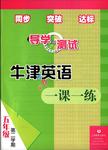题目内容
The food we eat seems to have profound effects on our health. Although science has made enormous (巨大的) steps in making food more fit to eat, it has, at the same time, made many foods unfit to eat. Some research has shown that perhaps eighty percent of all human illnesses are related to diet and forty percent of cancer is related to the diet as well, especially cancer of the colon (结肠). Difficult cultures are some prone to contract (易于染上) certain illnesses because of the food that is characteristic in these cultures. That food is related to illness is not a new discovery. In 1945, government researchers realized that nitrates and nitrites, commonly used to preserve color in meats, and other food additives (添加剂) , caused cancer. Yet, these carcinogenic additives remain in our food, and it becomes more difficult all the time to know which things on the packaging labels of processed food are helpful or harmful. The additives which we eat are not all so direct. Farmers often give penicillin to beef and poultry (家禽) and because of this, penicillin has been found in the milk of treated cows. Sometimes similar drugs are administered to animals not for medical purposes, but for financial reasons. The farmers are simply trying to fatten the animals in order to obtain a higher price on the market. Although the Food and Drug Administration has tried repeatedly to control these procedures, the practices continue.
1. How has science done disservice(损害) to mankind?
A. Because of science, disease caused by contaminated food has been virtually done away with.
B. It has caused a lack of information, concerning the value of food.
C. As a result of scientific intervention (干涉), some potentially harmful substances have been added to our food.
D. The scientists have preserved the color of meats, but not of vegetables.
2. What are nitrates used for?
A. They preserve flavor in packaged food. B. They preserve the color of meats.
C. They are the objects of research. D. They cause the animals to become fatter.
3. The underlined word carcinogenic(Line 9) means most nearly the same as ________.
A. trouble-making B. money-making C. color-retaining D. cancer-causing
4. Which of the following statements is NOT true?
A. Drugs are always given to animals for medical reasons.
B. Some of the additives in our food are added to the food itself and some are given to the living animals.
C. Researchers have known about the potential hazards (危害) of food additives for over fifty years.
D. Food may cause forty percent of cancer in the world.
CBDA

 导学与测试系列答案
导学与测试系列答案 新非凡教辅冲刺100分系列答案
新非凡教辅冲刺100分系列答案